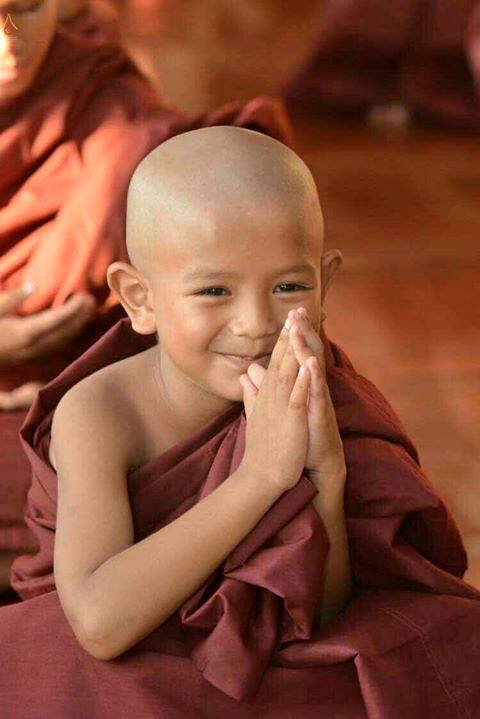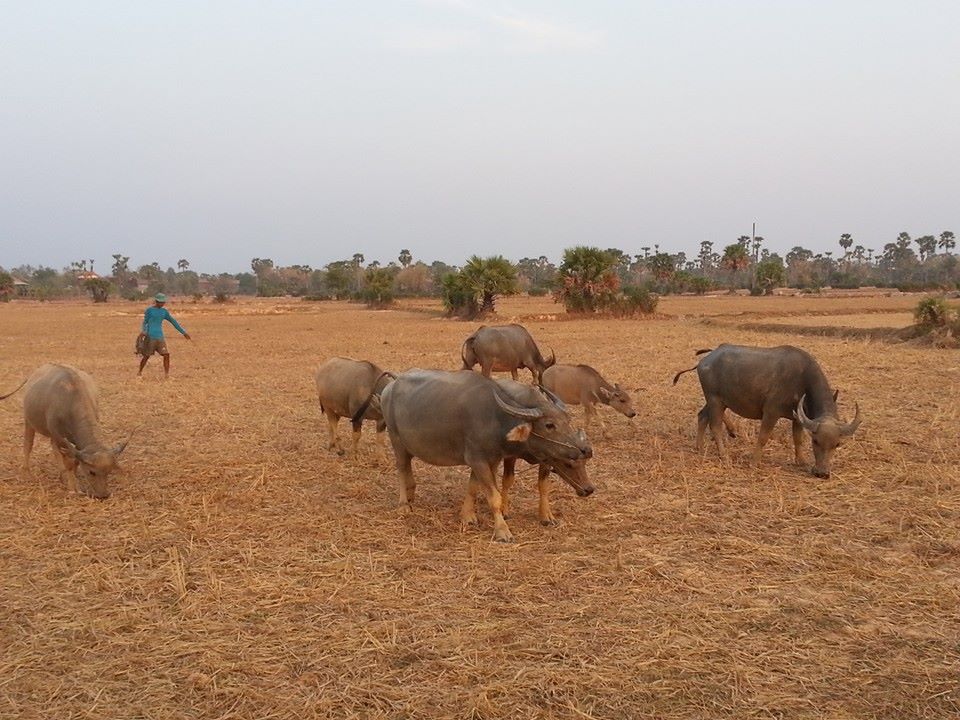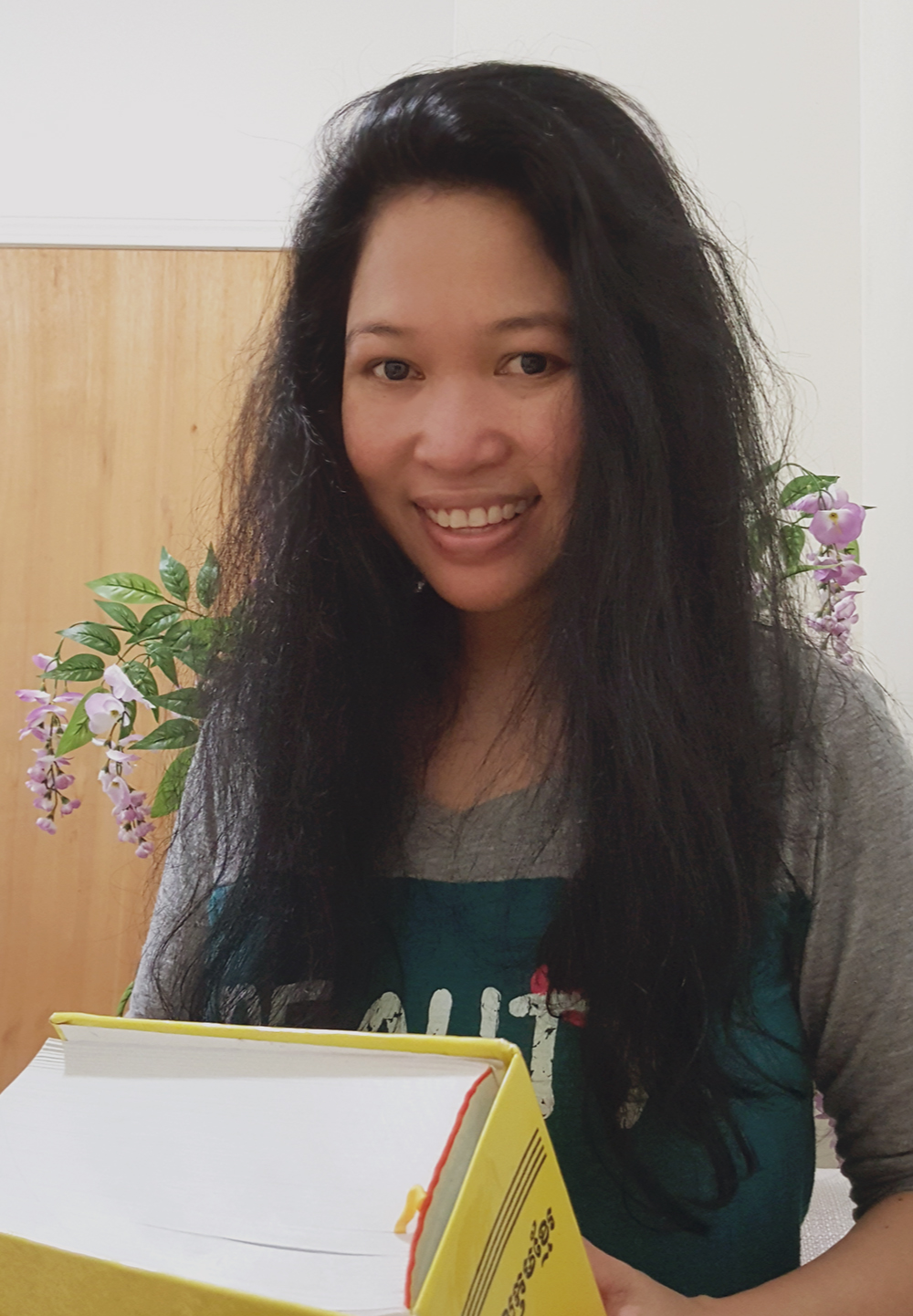
Verse 49: As the bee collects nectar and flies away without damaging the flower or its colour or its scent, so also, let the bhikkhu dwell and act in the village (without affecting the faith and generosity or the wealth of the villagers).
The Story of Kosiya, the Miserly Rich Man
While residing at the Jetavana monastery, the Buddha uttered Verse (49) of this book, with reference to the Chief Disciple Maha Moggallana and the miserly rich man, Kosiya.
In the village of Sakkara, near Rajagaha, there lived a miserly rich man by the name of Kosiya, who was very reluctant to give away even the tiniest part of anything belonging to him. One day, to avoid sharing with others, the rich man and his wife were making some pancakes in the uppermost storey of their house, where no one would see them.
Early in the morning, on that day, the Buddha through his supernormal power, saw the rich man and his wife in his vision, and knew that both of them would soon attain Sotapatti Fruition. So he sent his Chief Disciple Maha Moggallana to the house of the rich man, with instructions to bring the couple to the Jetavana monastery in time for the midday meal. The Chief Disciple, by supernormal power, reached Kosiya’s house in an instant and stood at the window. The rich man saw him and asked him to leave; the Venerable Maha Moggallana just stood there without saying anything. In the end, Kosiya said to his wife, “Make a very small pancake and give it to the bhikkhu.” So she took just a little amount of dough and put it in the pan, and the cake filled up the whole pan. Kosiya thought his wife must have put in too much, so he took just a pinch of dough and put it into the pan; his pancake also swelled into a big one. It so happened that however little dough they might put in, they were unable to make small pancakes. At last, Kosiya asked his wife to offer one from the basket to the bhikkhu. When she tried to take out one from the basket it would not come off because all the pancakes were sticking together and could not be separated. By this time Kosiya has lost all appetite for pancakes and offered the whole basket of pancakes to Maha Moggallana. The Chief Disciple then delivered a discourse on charity to the rich man and his wife. He also told the couple about how the Buddha was waiting with five hundred bhikkhus at the Jetavana monastery in Savatthi, forty-five yojanas away from Rajagaha. Maha Moggallana, by his supernormal power, then took both Kosiya and his wife together with their basket of pancakes, to the presence of the Buddha. There, they offered the pancakes to the Buddha and the five hundred bhikkhus. At the end of the meal, the Buddha delivered a discourse on charity, and both Kosiya and his wife attained Sotapatti Fruition.
Next evening, while the bhikkhus were talking in praise of Maha Moggallana, the Buddha came to them and said, “Bhikkhus, you should also dwell and act in the village like Maha Moggallana, receiving the offerings of the villagers without affecting their faith and generosity, or their wealth.”
Then the Buddha spoke in verse as follows:
Verse 49: As the bee collects nectar and flies away without damaging the flower or its colour or its scent, so also, let the bhikkhu dwell and act in the village (without affecting the faith and generosity or the wealth of the villagers).
Dhammapada Verse 49
Macchariyakosiyasetthi Vatthu
Yathipi bhamaro puppham
vannagandhamahethayam
paleti rasamadaya
evam game muni care.
Source: Tipitaka












